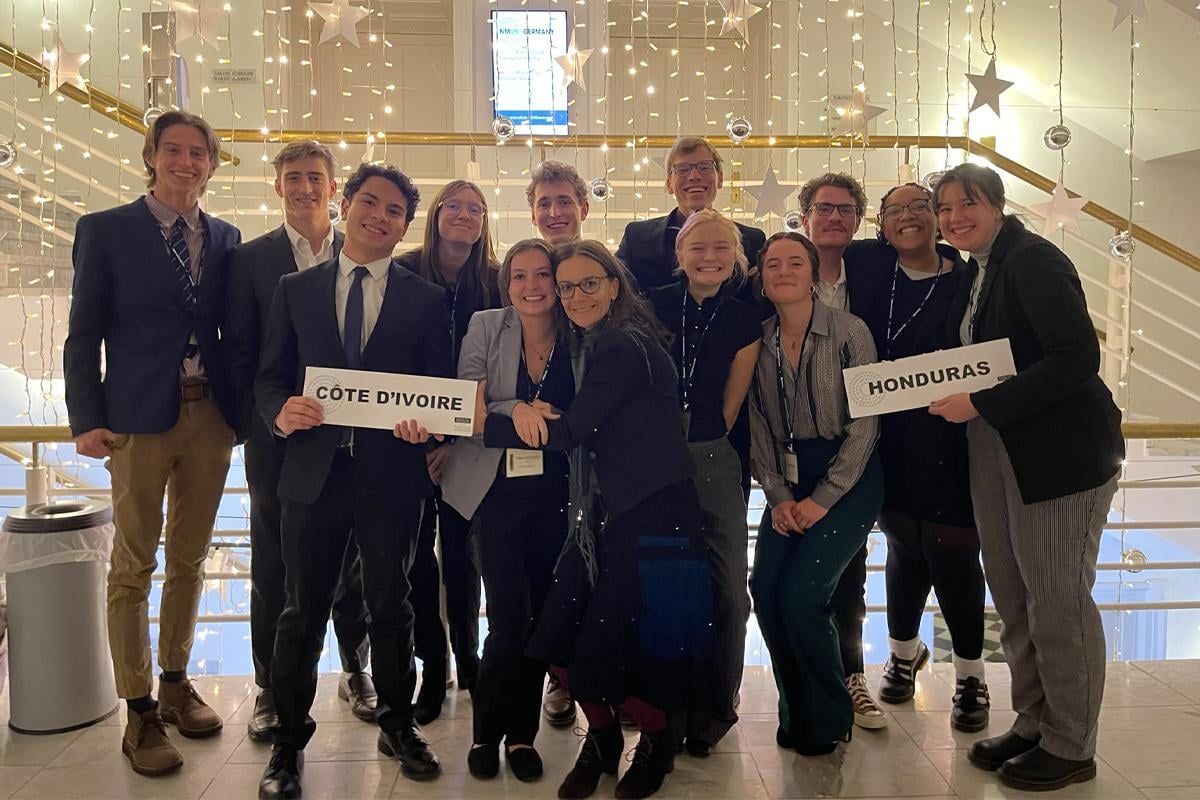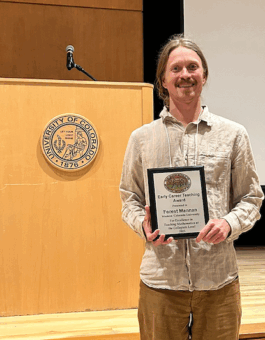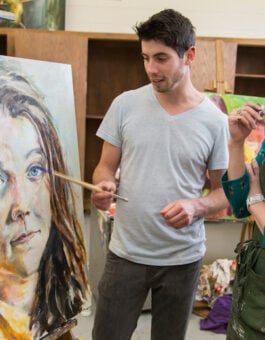War, corruption, hunger, climate change, the struggle for human rights. The next generation of leaders has their work cut out for them. Professor Maria Struble wants to make sure that when Western’s graduates are called on to lead, they’re ready to tackle some of the biggest challenges the modern world has faced.
That’s why during Fall Break 2023, when many students were home with their families, Struble led a trip to Erfurt, Germany, where 12 undergraduates gave speeches, lobbied their peers, and presented position papers on behalf of Honduras and Côte d’Ivoire to a truly international body.
Model UN is a triannual opportunity for the next generation of leaders to step into the role of UN ambassadors and address serious and weighty matters in a way that’s on par with what their real-world counterparts might do.
Although all of the students’ in-country expenses are covered by a long and intense effort to raise funding through grants and other contributions, including airfare from one of Western’s most generous benefactors, Dave Geiman, Model UN is an experience the students invest a lot in.
Those who make it through an interview process and eventually comprise Western’s delegation – many of whom will go on to law school or pursue careers in government – are part of a class worth three upper-division credits, and the expectations are high.
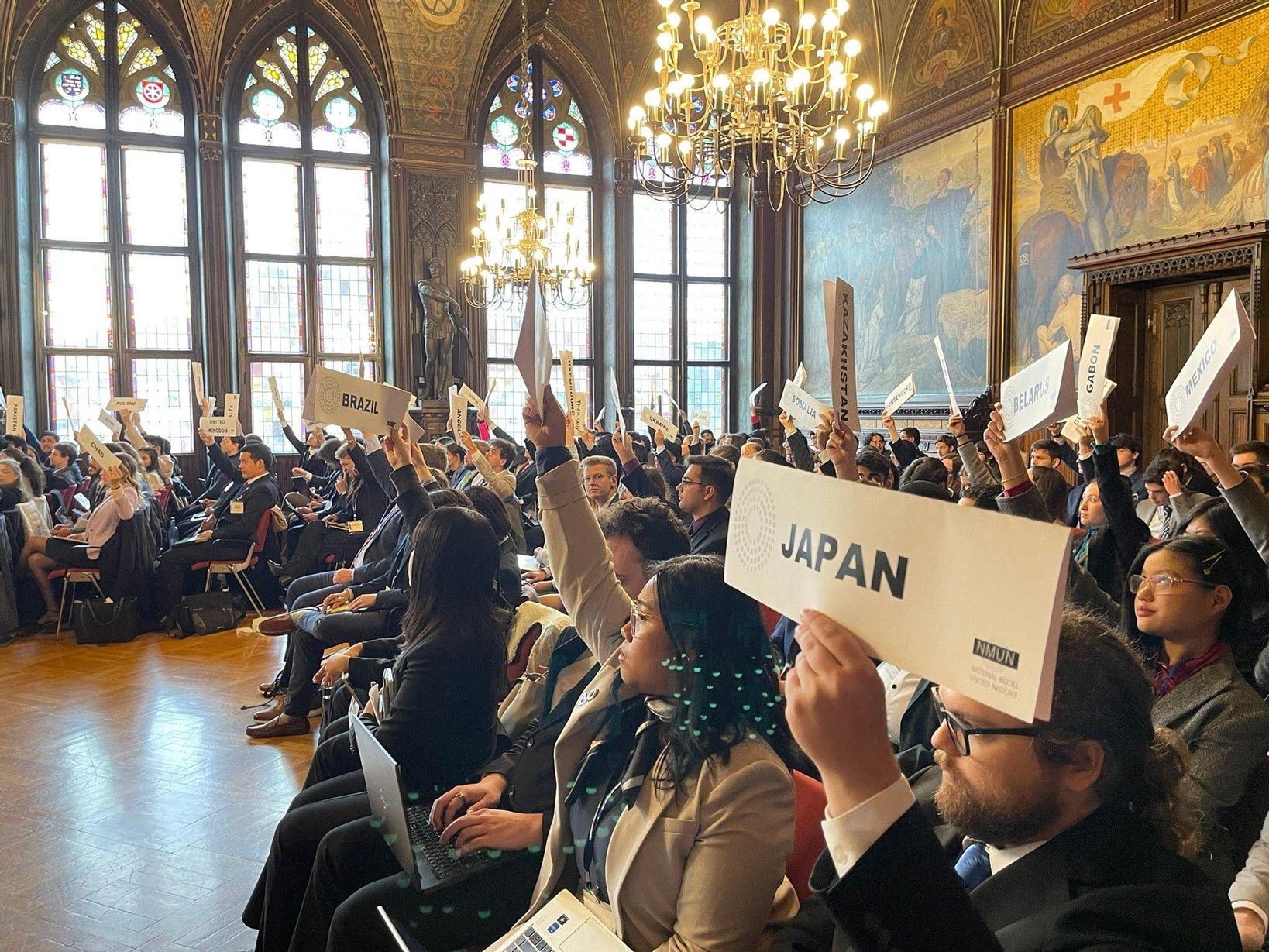
Not A Typical Class
Before they go to the convention, students are assigned one or more countries to represent and choose which of the four available committees they want to sit on. The Western delegation was assigned Honduras and Côte d’Ivoire, also known as Ivory Coast. Then they’re given topics to become subject matter experts in and write as many as 10 versions of a position paper – detailing an argument they’ll later debate – from the perspective of both countries.
This year, the topics discussed were characteristically dense. They were the Implementation of the Convention Against Corruption; Science, Technology, and Innovation for Sustainable Development; Freedom of Expression and Access to Information in the Digital Age; Promoting the Right to Food in the Context of Conflicts and Violence; Promoting Multilateralism to Combat Climate Change, Biodiversity Loss, and Pollution; Promoting Resource Efficiency in Urban Development.
“The goal is to accept resolutions by acclamation. So they learn how to research, they work on very professional writing and learn how to write these very technical papers without extra fluff, and they come up with actual solutions,” Struble said. “It’s hard. They learn that good writing takes time, and that’s okay.”
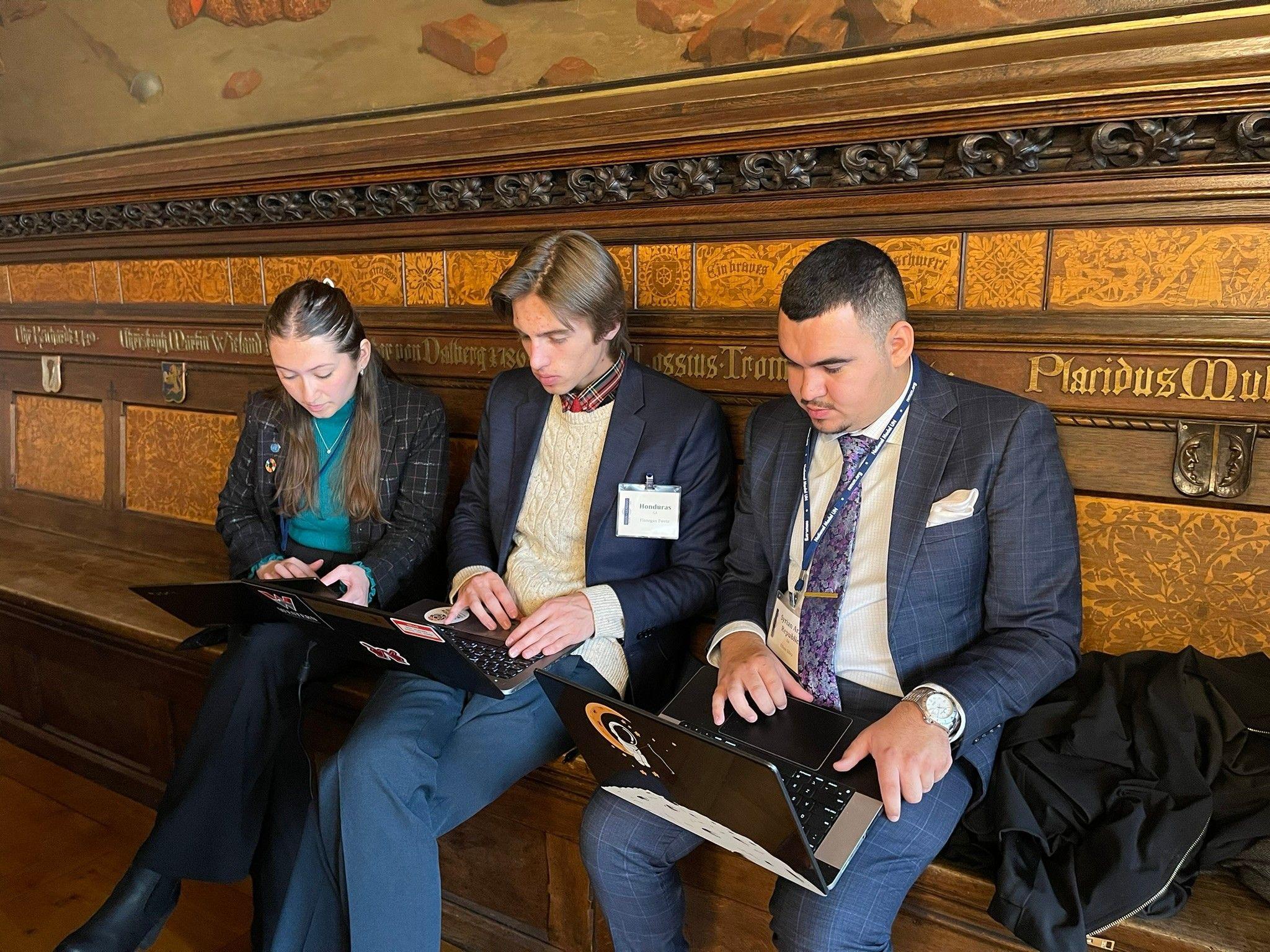
Simulating Diplomacy
But the classroom work was just the beginning. Once they were at the conference, the students took their places on the Human Rights Commission and the Environmental Assembly, presented their papers, and debated the topics to sway their counterparts to their point of view.
“They prepare the entire semester for the conference. We learn Robert’s Rules of Order because that’s how they run committees. They have to dress and behave professionally,” Struble said. “When they’re at the conference and in committee, they have to do speeches, so they really practice public speaking. Then in the informal caucus, they mingle and do their lobbying.”
When the students come as close to consensus as they’re going to get, each committee writes a resolution that goes before the General Assembly for a vote.
“It’s about as real as a fake thing can be,” Struble said.
At the end of the conference, awards are given for the position papers students write, the performance of delegates in committee, and then for delegations as a whole. Western’s delegation did quite well, winning a Distinguished Delegation Award for the students’ work on behalf of Honduras, along with Outstanding Delegate awards for Finnegan Twete and Emory Hopkins.
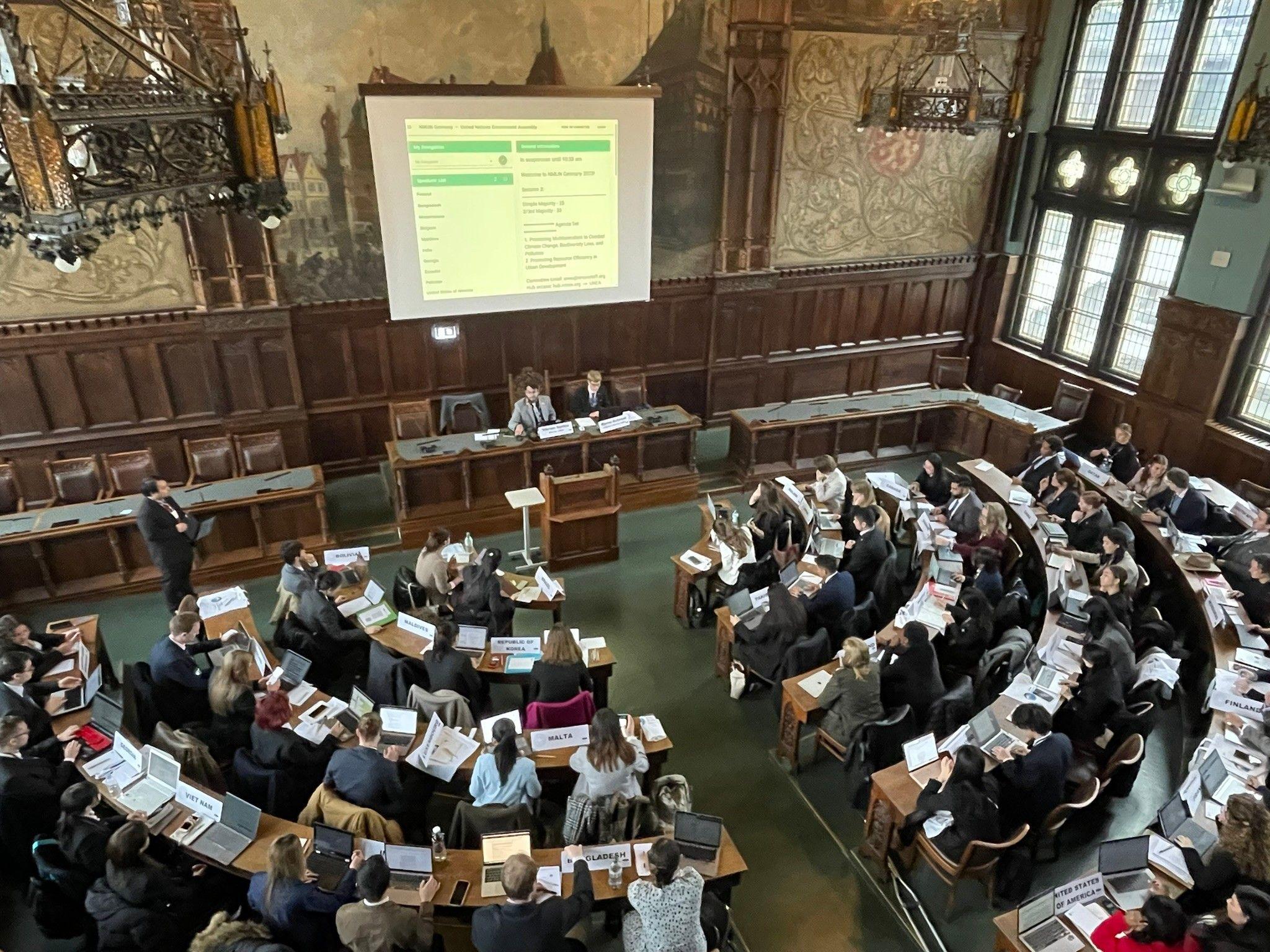
First the Committees, Then on to Culture
Although Struble has been taking students to Model UN conferences since 2013, the Fall session in Germany is new and just a quarter the size of the main event held in New York City every Spring.
And while students worked incredibly hard on their papers and speeches, the trip was as much a cultural outing as it was an academic one. In addition to growing close as a class, they also made friends from around the world. The 500 students who attended the conference represented more than a dozen countries, including students from the Philippines, Germany, France, the United States, Ukraine, Italy, the United Kingdom, Belgium and Japan.
In their free time, the students went to the site of the Buchenwald Concentration Camp, visited the UNESCO World Heritage Site where Martin Luther translated the Bible in Wartburg Castle, and toured the Point Alpha Memorial. While they served on committees and the General Assembly, students worked in the ornately decorated neo-Gothic Rathaus Town Hall, built in the early 1870s on Fischmarkt square in downtown Erfurt. Students on the Human Rights Commission held their sessions in the old Stasi prison building, where the East German secret police held their detainees and committed countless human rights violations. Equally important to the experience was that students learned to navigate the town using signs they could barely read and a language they could hardly speak.
“I’ve just never experienced anything like that in my life,” senior History major and delegate Sierra Fortin said of the trip. “Aside from being surrounded by all the historic places and buildings, which for a history major was incredible, it was really fun getting to know some of the people I’d been in class with all semester. I’m usually a very shy person, and the conference helped me open up and be a little more comfortable thinking or sharing the ideas I have with a group of strangers. I also got to collaborate with other college students from around the world. It helped me become more confident in my abilities and was really enlightening and eye-opening to a lot of different ideas and perspectives.”
Want to be a part of the story?
Be part of a community that’s curious about the world and driven to make a difference. In the Behavioral & Social Sciences Department, you’ll work alongside faculty and peers to explore human behavior, challenge assumptions, and create real change.
